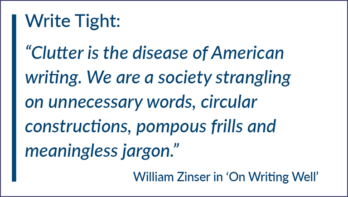
Research is either a much-loved task, humdrum chore or angst-filled process, depending which writers or editors are asked. Whether loved or dreaded, research is a building block for effective fiction and nonfiction projects.
As a freelance magazine and devotional writer, I’ve used research in myriad ways, including to find or verify statistics; locate relevant sources for articles; find interesting holiday tie-ins (like “Teach Children to Save Day” for an article on kids and money); and other data that might be useful in adding sizzle to my nonfiction projects. Similarly, research has proven essential for the nonfiction books I write for kids and teens.
Regardless of a project’s length, research can help writers and editors shape reliable content that meets readers’ needs. Following are keys to effective research. Methods used will vary, depending on the amount of time writers and editors have to develop a particular piece.
For my projects, I’ve worked with primary and secondary sources. Sources selected depend on the project, its scope, and length. Useful primary sources include experts in a field, government agency websites, and library collections of original materials from individuals and organizations.
Churches and other religious organizations, local nonprofits and businesses, museums and other cultural institutions are all potential secondary research sources (although same may also be primary sources). Others include books, magazine articles, and videos, such as TEDx Talks related to a selected topic, or webinars presented by the subject of a future feature or investigative article.
Finding relevant information
Over time, I’ve discovered the following work best for finding relevant information.
- Use—and especially quote—only reliable sources. Government agencies, industry-specific associations, companies, organizations, and academic and research institutions are reliable places for finding current data, or verifying statistics.
- Connect with local institutions, churches, or leaders. Renowned, national leaders are often sourced for quotes and/or background information. However, local leaders may be easier to reach and more available for writers and editors with short article turnaround times.
- Read the small print. Footnotes and endnotes in articles, and book bibliographies have saved me hours of research. By reviewing some of the referenced material I have located information for my projects. (With the rapidly changing nature of websites, it’s essential to print or download articles as soon as possible.)
- Flash your EPA credentials. Many companies, public relations agencies, and other entities willingly help professional writers and editors with information needs. Some online resources, like ProfNet.com, also offer journalists and freelancers free services for finding experts. Visit prnewswire.com/profnet/profnet-journalists to learn more.
- Hang out on social media. Social media is useful for finding people to interview for articles, and for discovering information about newsworthy people and events.
- Sign up for news and/or event alerts. Email can be tough enough to navigate, especially for editors, without additional material coming in daily. However, many reliable sources offer free subscriptions to newsletters and other information, which are especially helpful for current and future projects—and idea generation.
- Organize your research. Effective research includes saving and managing it so that it’s handy and easily accessible. These days, I rely heavily and almost solely on electronic files to organize my research. Prefer hard copies? I use those too, but mainly for book projects. Organizing your research will also include keeping an informal list or formal bibliography of any source material in the event it’s needed, or requested by an editor, publisher, or fact checker.
Making it work
In a crunch? Here are three research-related strategies that work. First, set the clock. If there’s only time for a couple hours of research use all of it and then stop. Resist the temptation to cut into valuable writing or editing time by returning to the search.
Second, quit while you’re ahead. It’s easy to get bogged down in research and never get to writing or editing the piece you’re working on.
Third, revise, cut, or re-imagine. Preliminary research may prove that the information is not easily obtained in your deadline window. An article idea or magazine issue can often be revamped to exclude that information, or to substantially reduce its importance to the entire project.
Sounds like a lot? It can be when research is approached on an article-by-article or issue-by-issue basis and jammed into a day or week filled with other pressing writing and editing tasks. But when approached as an integral part of writing and editing and included in one’s overall approach to craft excellence, it becomes more manageable.
— By Lisa A. Crayton
She is an award-winning freelance writer and author of more than ten nonfiction books for kids and teens. Visit her website at lisacrayton.wordpress.com.





